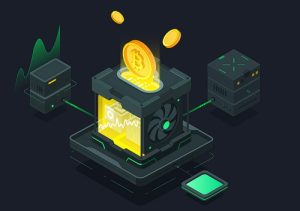Frequently Asked Questions (FAQ)
1. How Does Cloud Mining Work? Cloud mining providers own and operate large-scale mining facilities. Users sign up for cloud mining contracts, selecting a specific hashing power and duration. The provider allocates a share of their mining power to the user, and the mined rewards are distributed accordingly.
2. What Cryptocurrencies Can I Mine in the Cloud? The availability of cryptocurrencies for cloud mining varies among providers. Commonly mined cryptocurrencies include Bitcoin (BTC), Ethereum (ETH), Litecoin (LTC), and others. Users should check the supported coins before choosing a cloud mining service.
3. What Factors Should I Consider Before Choosing a Cloud Mining Provider?
- Reputation: Choose providers with a solid reputation in the industry.
- Contract Terms: Understand contract duration, fees, and potential restrictions.
- Profitability: Assess the provider’s historical and current profitability.
- Security Measures: Ensure the platform employs robust security measures to protect your investment.
- Transparency: Look for transparency in fee structures and operational processes.
4. Are There Risks Associated with Cloud Mining? Yes, there are risks associated with cloud mining, including:
- Scams: The industry has seen fraudulent cloud mining schemes, so users must research and choose reputable providers.
- Market Fluctuations: Cryptocurrency prices and mining difficulty can impact overall profitability.
- Dependency on Provider: Users depend on the reliability and performance of the cloud mining service.
5. Can I Upgrade or Downgrade My Cloud Mining Plan? Most cloud mining providers allow users to upgrade or downgrade their plans. However, the process and potential fees associated with plan changes can vary. Users should check the provider’s terms and conditions for details on plan adjustments.
6. What Happens If the Cloud Mining Provider Faces Downtime? Downtime on the provider’s end can impact mining rewards. Users should inquire about the provider’s operational history, maintenance schedules, and contingency plans for minimizing downtime. Some providers may offer compensation for downtime-related issues.
7. How Can I Calculate Potential Profits from Cloud Mining? Users can use online calculators to estimate potential profits based on factors such as hashing power, electricity costs, and contract duration. It’s crucial to factor in fees and market conditions for a more accurate projection.
8. Can I Mine Multiple Cryptocurrencies Simultaneously in the Cloud? Many cloud mining providers support the mining of various cryptocurrencies. Users can diversify their mining portfolio by choosing contracts for different coins. It’s essential to check the provider’s offerings and supported cryptocurrencies.
9. Are There Alternatives to Cloud Mining? Yes, alternatives to cloud mining include traditional mining with personal hardware, joining mining pools, or participating in staking and masternode systems. Each method has its own advantages and considerations, and users should explore various options based on their preferences and resources.
